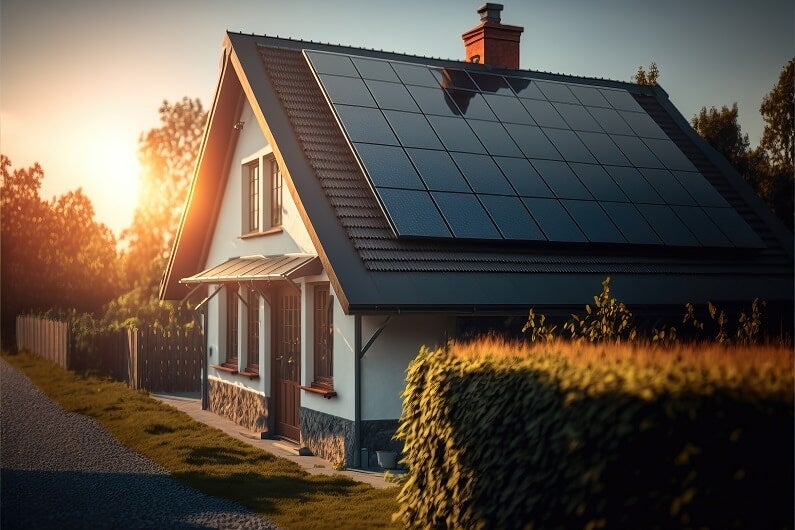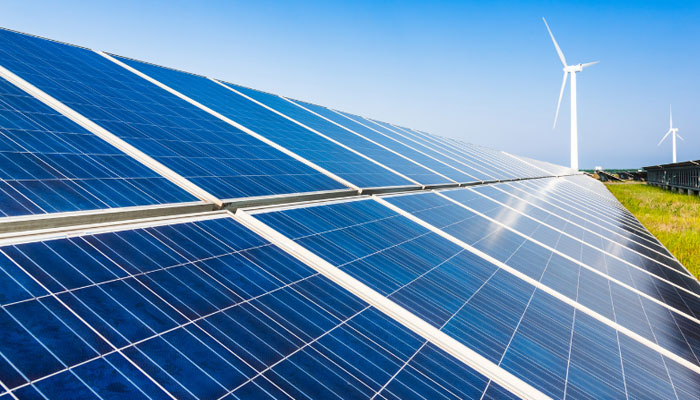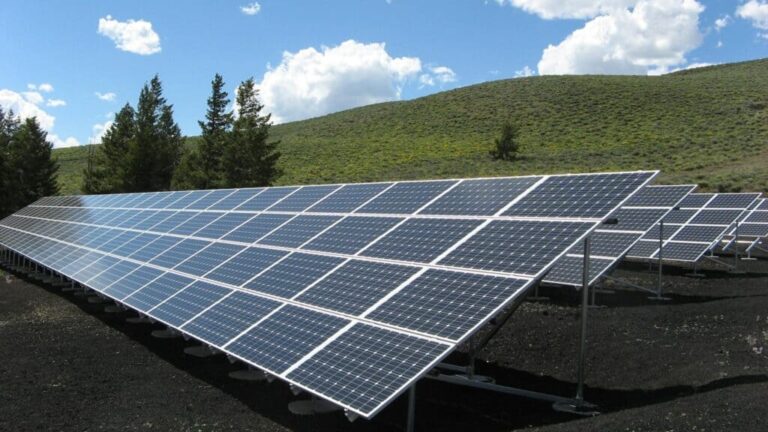The Economic and Environmental Benefits of Installing Solar Panels at Home
In recent years, the adoption of solar energy has surged as individuals and communities seek sustainable alternatives to traditional power sources. Solar panels, which harness sunlight to generate electricity, offer both economic and environmental advantages. Understanding these benefits can empower homeowners to make informed decisions about incorporating solar technology into their properties.
Defining Solar Energy
Solar energy is a renewable energy source derived from the sun’s radiation. Solar panels, also known as photovoltaic (PV) panels, capture sunlight and convert it into usable electricity through the photovoltaic effect.
Relevance and Importance
The growing concern over climate change and environmental degradation has heightened interest in renewable energy solutions. Solar power presents a clean and sustainable alternative to fossil fuels, reducing greenhouse gas emissions and mitigating reliance on finite resources.
Types and Categories
Solar panels come in various types and configurations, each suited to different applications and environments.
Monocrystalline Panels
Monocrystalline panels are made from a single crystal structure, offering high efficiency and longevity. They are ideal for small spaces with limited installation area.
Polycrystalline Panels
Polycrystalline panels consist of multiple silicon crystals, providing a cost-effective option for larger installations. While slightly less efficient than monocrystalline panels, they offer competitive performance at a lower price point.
Thin-Film Panels
Thin-film solar panels use layers of photovoltaic material deposited onto a substrate, resulting in lightweight and flexible modules. They are suitable for unconventional installations and applications where traditional panels may be impractical.
Bifacial Panels
Bifacial panels absorb sunlight from both the front and rear sides, increasing energy production by capturing reflected light. This innovative design maximizes efficiency, particularly in environments with high albedo surfaces.
Symptoms and Signs
Understanding the benefits of solar panels involves recognizing the indicators of their impact on both the economy and the environment.
Economic Benefits
Cost Savings on Electricity Bills
One of the most significant advantages of solar panels is their ability to reduce or eliminate electricity bills. By generating their own power, homeowners can offset or entirely avoid the costs associated with grid-supplied electricity.
Return on Investment (ROI)
While the initial investment in solar panels can be substantial, the long-term savings often outweigh the upfront costs. With declining installation expenses and available incentives such as tax credits and rebates, solar energy systems offer attractive returns on investment over their lifespan.
Increased Property Value
Homes equipped with solar panels typically command higher resale values. Buyers recognize the appeal of energy-efficient features and are willing to pay premiums for properties with lower operating expenses and reduced environmental footprints.
Environmental Benefits
Carbon Emission Reduction
Solar energy production produces minimal greenhouse gas emissions compared to fossil fuel-based electricity generation. By transitioning to solar power, individuals can contribute to mitigating climate change and reducing air pollution.
Conservation of Natural Resources
Traditional energy sources rely on finite resources such as coal, oil, and natural gas, which are subject to depletion and price volatility. Solar energy harnesses an abundant and inexhaustible resource, reducing reliance on non-renewable fuels and promoting energy security.
Environmental Preservation
The extraction, processing, and combustion of fossil fuels have significant environmental impacts, including habitat destruction, water pollution, and ecosystem disruption. Solar panels offer a cleaner and more sustainable alternative, minimizing ecological harm and preserving natural landscapes.
Causes and Risk Factors
Several factors drive the adoption of solar panels and influence their effectiveness in delivering economic and environmental benefits.
Declining Costs
Advancements in solar technology, manufacturing processes, and economies of scale have led to substantial reductions in the cost of solar panels. Lower prices make solar energy more accessible to a broader range of consumers, accelerating market growth and adoption rates.
Government Incentives
Many governments offer incentives and financial support to promote the adoption of renewable energy technologies. These incentives may include tax credits, rebates, grants, and net metering programs, making solar panel installation more affordable and attractive to homeowners.
Environmental Awareness
Increasing awareness of climate change and environmental sustainability motivates individuals to seek greener alternatives to conventional energy sources. Solar panels represent a tangible and effective way for individuals to reduce their carbon footprint and contribute to global efforts to combat climate change.
Diagnosis and Tests
Determining the feasibility and potential benefits of installing solar panels requires careful assessment and analysis of various factors.
Site Evaluation
A thorough site evaluation is essential to assess the solar potential of a property. Factors such as location, orientation, shading, roof condition, and available space influence the suitability and performance of solar panels.
Energy Consumption Analysis
Analyzing historical energy consumption data helps determine the size and capacity of the solar energy system needed to meet a homeowner’s electricity needs. Understanding energy usage patterns allows for accurate sizing and optimization of the solar array.
Financial Analysis
Conducting a comprehensive financial analysis enables homeowners to evaluate the cost-effectiveness of solar panel installation. Factors such as upfront costs, potential savings, incentives, financing options, and payback periods inform decision-making and investment planning.
Treatment Options
Installing solar panels offers a sustainable and cost-effective solution for reducing reliance on grid-supplied electricity and lowering energy bills.
Solar Panel Installation
The installation process typically involves several steps, including site assessment, design, permitting, equipment procurement, and installation. Professional installation ensures optimal performance, safety, and compliance with local regulations and building codes.
System Integration
Integrating solar panels with existing electrical systems requires careful planning and coordination to ensure compatibility, efficiency, and safety. Inverter installation, electrical wiring, metering, and grid connection are critical components of the integration process.
Maintenance and Monitoring
Regular maintenance and monitoring are essential to ensure the optimal performance and longevity of solar energy systems. Tasks such as cleaning, inspection, testing, and troubleshooting help identify and address issues promptly, maximizing energy production and return on investment.
Preventive Measures
Maximizing the benefits of solar panels involves implementing proactive strategies to optimize performance and minimize risks.
Proper Installation
Professional installation by certified solar contractors ensures the quality, safety, and reliability of solar energy systems. Following manufacturer recommendations and industry best practices minimizes the likelihood of installation errors and performance issues.
Regular Maintenance
Scheduled maintenance, including cleaning, inspection, and maintenance, prevents the accumulation of dirt, debris, and other contaminants that can impair solar panel performance. Monitoring system performance and addressing any issues promptly helps maintain optimal efficiency and reliability.
Energy Efficiency Measures
Combining solar panel installation with energy-efficient practices and technologies enhances overall energy savings and environmental benefits. Implementing energy-efficient appliances, lighting, insulation, and HVAC systems reduces energy consumption and maximizes the impact of solar power.
Personal Stories or Case Studies
Real-life experiences illustrate the tangible benefits and transformative effects of installing solar panels at home.
The Smith Family: A Case Study in Energy Independence
The Smith family installed solar panels on their suburban home as part of their commitment to sustainability and reducing their carbon footprint. Since switching to solar power, they have seen significant reductions in their electricity bills and have enjoyed the peace of mind that comes with energy independence.
Maria’s Journey to Solar Savings
Maria, a single mother living in a modest apartment, decided to invest in solar panels to lower her monthly expenses and provide a better future for her children. With the help of government incentives and financing options, she was able to afford the initial installation costs. Over time, the savings on her electricity bills have allowed her to allocate more resources to her family’s needs, improving their quality of life and financial stability.
John and Emily: Reducing Their Carbon Footprint
John and Emily, a retired couple passionate about environmental conservation, opted to install solar panels on their rural property. By generating their own clean energy, they have significantly reduced their reliance on fossil fuels and minimized their environmental impact. They take pride in knowing that they are contributing to a healthier planet for future generations.
Expert Insights
Experts in the field of renewable energy offer valuable perspectives on the economic and environmental benefits of solar panel installation.
Dr. Sarah Johnson, Renewable Energy Specialist
“Solar energy represents a transformative shift towards a more sustainable and resilient energy future. By harnessing the power of sunlight, we can reduce our dependence on fossil fuels, mitigate climate change, and create a cleaner and healthier environment for all.”
David Martinez, Solar Panel Installer
“As a solar panel installer, I’ve witnessed firsthand the positive impact that solar energy can have on homeowners and communities. Not only does solar power offer significant cost savings and energy independence, but it also helps to create local jobs and stimulate economic growth.”
Conclusion
The decision to install solar panels at home offers a multitude of benefits, ranging from financial savings to environmental stewardship. By harnessing the abundant energy of the sun, individuals can reduce their carbon footprint, lower their electricity bills, and contribute to a more sustainable future for generations to come.




